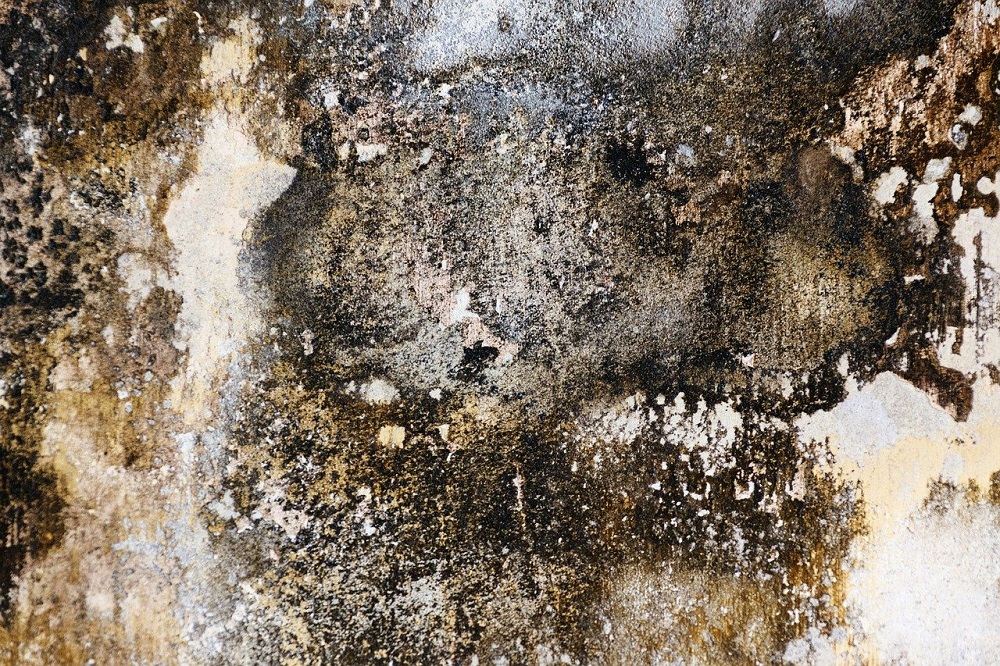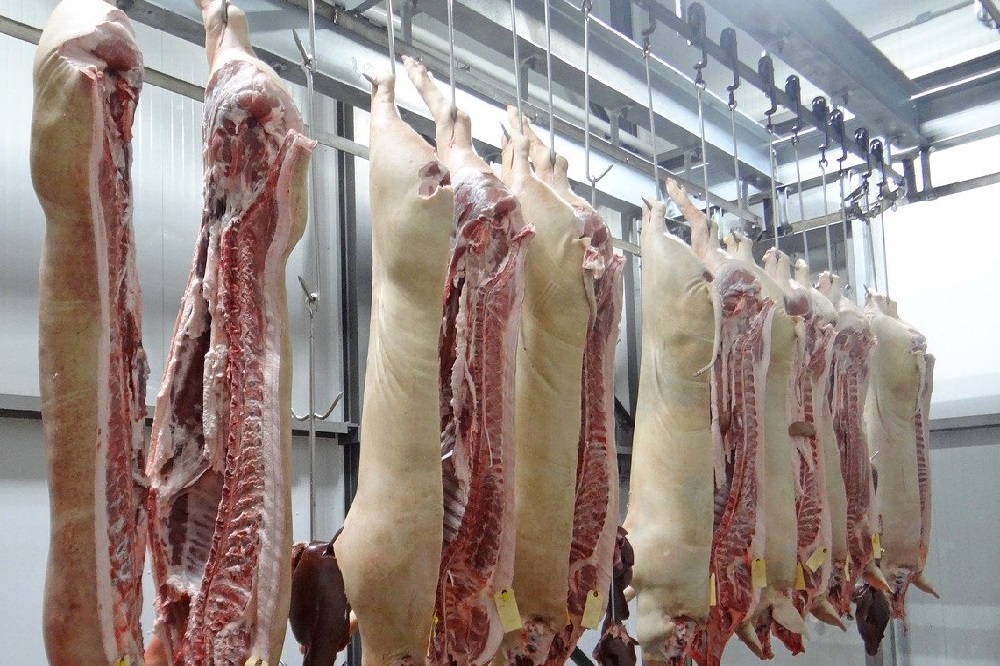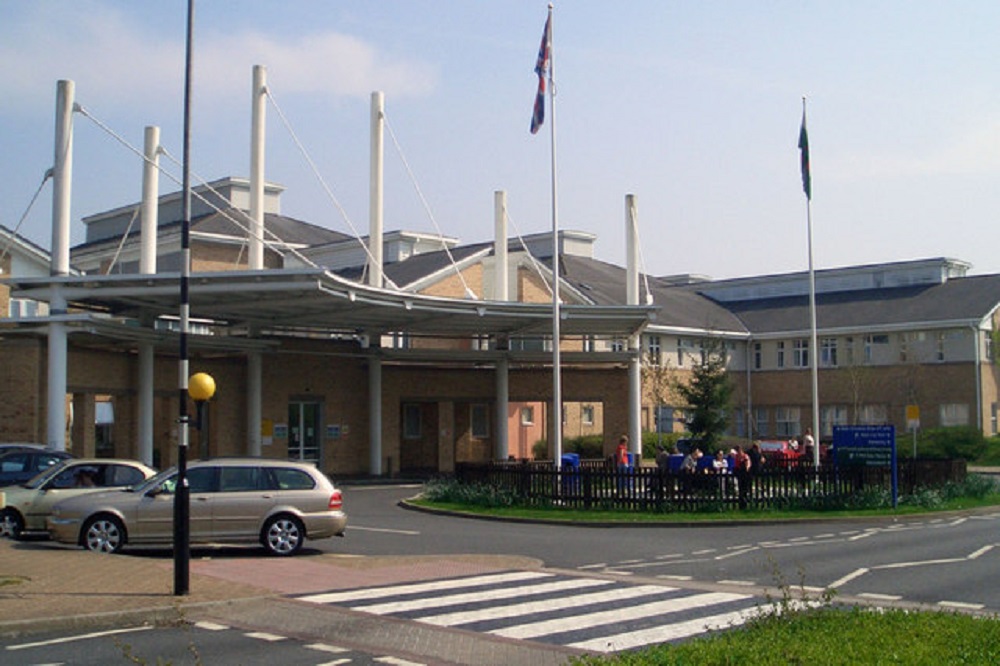Today’s Senedd roundup: Drakeford defends shock Betsi Cadwaladr figures

Owen Donovan, Senedd Home
First Minister’s Questions
Adam Price AM (Plaid, Carms. E & Dinefwr) started by asking whether the First Minister will back calls from the Leader of Rhondda Cynon Taf Council and others that a criminal investigation be launched into the Cwm Taf maternity scandal?
The First Minister politely refused to say anything on the subject, believing a decision was ultimately a police matter.
Turning elsewhere in the NHS, Adam Price revealed that 53% of fatal incidents in the Welsh NHS over the last year happened in north Wales’ Betsi Cadwaladr health board – which has been in special measures for five years – despite only covering 20% of Wales’ population.
“Between December 2018 and December 2019….there were 41 incidents resulting in death registered within Betsi. That’s 53% of all such deaths reported by Welsh health boards in total….
“Between November 2017 and December 2019, there were 520 incidents within Betsi that resulted in death or serious harm. That total is higher than all the other health boards in Wales combined. Now, there is either a serious underlying problem within Betsi or there is severe underreporting elsewhere in Wales. Which is it?”
– Adam Price AM
The First Minister said it was a sign that the health board was properly recording incidents and it shouldn’t be assumed that a high rate of incidents was a sign things were particularly bad. To Adam Price, this suggested the First Minister believes fatal incidents are being under-reported in the rest of Wales, then?
What he got back was this:
“What I am saying here is that we want a culture in the NHS in Wales that when things go wrong, people feel empowered to speak up; that things are reported, and things are learned as a result of those reports being made. I want to see that in every part of Wales, and the Member’s attempt (ing) to try and drag the NHS through the mud once again this afternoon….”
– First Minister, Mark Drakeford (Lab, Cardiff West)
First Minister accepts A465 costs are higher than anticipated
Leader of the Opposition, Paul Davies AM (Con, Preseli Pembs.), asked about the project to dual the A465 through the Clydach Gorge, which is behind schedule. Would there be any additional money spent on it to speed up work?
“In 2011, the Wales Audit Office found that major transport projects had cost substantially more and taken longer to complete than expected, with overspends totalling £226 million….First Minister, do you accept that lessons simply haven’t been learned from that damning report, and do you recognise the very distressing impact that your Government’s mismanagement of road projects is having on people’s lives across Wales?”
– Leader of the Opposition, Paul Davies
The First Minister told AMs there was ongoing arbitration between the government and the contractor over additional costs, mainly arising due to the difficult topography. He conceded that “the budget for the completion is beyond what had originally been anticipated.” However, he refused to take any lessons on runaway costs from the party overseeing England’s High Speed 2 project where overruns are in the tens of billions.
Marking Brexit
Mark Reckless AM (BXP, South Wales East) was excited about the forthcoming “Brexit Day” and was looking forward to taking his children to the Royal Mint to strike their own 50p coins; but what would the First Minister be doing?
Obviously, the First Minister won’t be going on a tour and most of the Welsh Government’s Brexit work in the weeks and months to come will be to ensure the devolved administrations are properly involved in post-Brexit negotiations with the EU. He was open to hearing what opposition parties have to say when they have constructive ideas to contribute to important public debates.

Photo by klimkin from Pixabay.
Final version of the new National Curriculum revealed
The government has published the final guidance for the new National Curriculum for Wales, which is set to be fully rolled-out in Welsh schools for pupils aged 3-16 from 2022.
The guidance is largely the same as previous draft versions but has been, in the words of the government, made “simpler, shorter and gives every school in Wales the opportunity to design their own curriculum within a national approach that ensures consistency”.
An extra £15 million has been made available to schools to prepare for the changes, while one extra teacher training (INSET) day will take place for each of the next three years.
A full implementation plan is due to be published after the Easter recess in March/April. Meanwhile, a Curriculum & Assessment Bill will be introduced to the Senedd during 2020 to make the necessary changes to the law.
The Four Purposes
The curriculum has four core purposes, ensuring students become:
- Ambitious, capable learners, ready to learn throughout their lives.
- Enterprising, creative contributors, ready to play a full part in life and work (including careers education and work-related experiences).
- Ethical, informed citizens of Wales and the world.
- Healthy, confident individuals, ready to lead fulfilling lives as valued members of society.
The Six Areas of Learning
The curriculum is divided into six broad areas of learning, with schools and teachers generally given the freedom to determine how and what students study within each area – a radically different approach to the more specific guidelines we have now.
- Expressive Arts – Students being able to express themselves creatively, explore different genres, mediums, techniques and tools in music, drama, dance, digital media, art and film. This includes learning about Welsh cultural traditions and learning how the creative arts can challenge viewpoints and be a force for social change.
- Health & Well-being – This includes physical (including the development of motor skills and playing sport), emotional and mental health. The aim is for students to develop empathy, self-respect (and respect for others), resilience, an ability to properly manage risks and form healthy relationships.
- Humanities – Students should properly understand the challenges facing humanity and the places, histories and society in which they live. Eventually, students will develop an in-depth understanding of “geographical, historical, religious, non-religious, business and social studies concepts” as well as their democratic rights.
- Languages, Literacy & Communication – Enable students to communicate in English, Welsh and international languages (at all ages, seemingly). This also means properly analysing and comprehending literature and other sources of information, making critical judgements and being able to express their own ideas on various topics.
- Mathematics & Numeracy – Self-explanatory, but developing logical reasoning and an ability to use mathematical concepts in everyday life. It also means being able to analyse data critically to make informed decisions.
- Science & Technology – Developing investigative and problem-solving skills through computer science and design. This also means considering the ethical problems associated with new technologies, understanding how forces and matter shape the universe, understanding living things and seeking answers to understand how things work.
The compulsory elements for all students include:
- Religion, values and ethics.
- Relationships and sexuality education (RSE).
- English.
- Welsh.
A “local, national and international” context should be included as a cross-cutting theme for all subjects to ensure students understand Wales’ place in the world, their local area’s place in Wales and building knowledge of different cultures, histories, values and traditions – a broad concept called “cynefin”.
Digital skills are also considered an important cross-curricular skill.
Assessment
Key stages have been replaced with progression steps at ages 5,8,11,14 and 16 where teachers will assess where each student is, with more specialist support given to students with special needs and more-able students likely to be pushed harder if they meet progression steps early. As students become older, they’ll be able to specialise in specific subjects (presumably in preparation for GCSEs).
There’ll be fewer targets set at local authority or national level, with schools instead setting performance targets based on their own strengths and weaknesses.
Annual schools reports will continue with information on each student’s well-being, progress across all parts of the curriculum, what steps are needed to support their progression and attendance figures.
Annual online reading and numeracy tests will seemingly continue, though it’s unclear at this point whether GCSEs will be reformed.

Royal Gwent Hospital
Worst ever A&E waiting times in Wales
Poor winter performances within Welsh A&E and ambulance services continue after the most recent figures showed only 72.1% of patients were seen within 4 hours compared to a target of 95%. At Ysbyty Glan Clwyd (pictured) and Royal Gwent Hospital, the rate was close to 50%.
The Welsh Ambulance Service recorded a 23% increase in life-threatening “red” category 999 calls.
The Royal College of Emergency Medicine said: “We need to assess ongoing health and social care needs both in hospitals and in the community. Without adequate health and social care resources and the consequential effect upon the unscheduled care system, this will inevitably result in A&E Department crowding which has, in turn, resulted in an increase in patients waiting outside A&E.”
Earlier this month, Health Minister, Vaughan Gething (Lab, Cardiff S. & Penarth) announced an additional £10 million to deal with winter pressures on top of £30 million announced in 2019.

Arbed: Will it leave more than green slime behind?
The Welsh Government’s Arbed scheme is a flagship policy designed to address fuel poverty – a topic currently subject to an inquiry by the Senedd’s Environment Committee.
Arbed is delivered in partnership with local authorities, housing associations and various subcontractors to deliver physical measures to cut bills for households that spend a high proportion of their outgoings on energy. All nobly intentioned.
While it’s not restricted to providing cavity wall insulation (it can include things like central heating replacements and other energy efficiency measures like external insulation), insulation has formed one of the key elements of the scheme.
For several years now, households which have taken part in Arbed (and other government-backed energy efficiency schemes) have reported serious problems with their homes as a result of inappropriate work.
It’s said up to three-quarters of Wales is unsuitable for cavity wall insulation due to driving rains and when the insulation is inappropriately installed it can lead to issues such as damp – which, with cruel irony, can lead to higher energy bills to deal with it as well as associated health problems.
While it’s true to say that for many people taking part in these programmes, the outcomes will likely be positive and they’ll appreciate the support (Cardiff University research – pdf), shoddy work can be ruinous.
Most of the recent headlines have come out of Gwynedd, but there are issues across Wales.
I’ve been reliably told that an independent survey of Arbed homes in the village of Caerau – one of the most deprived communities in Wales, north of Maesteg – suggested large future compensation claims (a figure of £1 million has been bandied about) due to a poor standard of work and damage to properties. To make matters worse, Bridgend Council seemingly only offered households a single contractor to carry out the work at the time.
Bridgend Council has been undertaking an internal audit of their management of the Arbed scheme but that report has been said to be “nearing completion” for the best part of a year or longer and hasn’t been published (as far as I can tell). It’s also unlikely to be a forensic examination, such as the reasons behind why a particular contractor was selected.
As the Senedd’s Environment Committee recently heard, there’s a huge amount of money flowing through energy efficiency and green energy schemes. Wherever there’s a complicated set-up with so many different players with differing motives there’s the potential for cowboys to muscle their way in alongside those with the best intentions at heart.
There’s always a danger that in the race for green pounds and big shifts in the way we power our homes, the bad experiences communities will have had will cloud their judgement when further schemes are put forward – in Caerau’s example plans to use mine water to heat homes, or a proposed district heating network in Bridgend town centre – convincing them that it’s not worth the hassle to take part at the risk of being left with a large bill to fix any possible problems.
So let’s hope that when Arbed inevitably comes under closer scrutiny at some point, the worst legacy it will have left behind is some green slime and not a politically explosive hot potato.

Committee throws its backing behind petition demanding slaughterhouse CCTV
Petitions Committee
Petition P-04-433: “CCTV in Slaughterhouses” (pdf)
Submitted by: Kate Fowler (Animal Aid)
Signatures: 1,066
Published: 23rd January 2020
- The issue has taken an extraordinarily long time to get this far
The petition was submitted in November 2012. The Committee was told by the then minister responsible, John Griffiths AM (Lab, Newport East), that the issue was being considered by the government – though he cautioned that there would need to be evidence to support introducing a law to make CCTV mandatory.
In 2015, advice from the UK body Farm & Animal Welfare Committee recommended all food businesses should install CCTV in areas where live animals are kept, stunned and killed. The then minister, Rebecca Evans AM (Lab, Gower), said she was “determined to make this happen” in October 2015 and established a task and finish group to investigate it further.
In 2017, the Petitions Committee determined the task and finish group had considered the issue entirely from the industry’s perspective, having recommended that abattoirs decide for themselves whether CCTV was appropriate. This voluntary approach was deemed ineffective.
During 2018 there was various to and fro arguments and stalling. The current Environment, Energy & Rural Affairs Minister, Lesley Griffiths (Lab, Wrexham), told the Committee that most abattoirs had CCTV anyway – though it was later revealed that 14 didn’t.
- The Welsh Government’s hand is forced
In September 2019, Animal Aid obtained covert footage of animal abuse at a slaughterhouse in Wrexham which was taken during spring and summer 2019. The footage included sheep being dragged by their throats and not being properly stunned before slaughter.
A Freedom of Information request later revealed that during 2017-18 there were 76 recorded animal welfare incidents at Welsh abattoirs, with 43 of them seemed serious or critical non-compliance.
Last November, the Minister said she “wouldn’t rule out” introducing a law depending on how a voluntary scheme – funding for which ends this month – works out.
Further FOI requests showed that Welsh Government funding for the Food Standards Agency (FSA) to carry out welfare inspections fell far short of the estimated £1 million the FSA said they require.
- Voluntary CCTV isn’t working
The Committee concluded that while the Welsh Government were considering introducing legislation, the voluntary approach wasn’t working because it isn’t supported by a fit-for-purpose inspection regime.
They decided that there was a strong animal welfare justification for mandatory CCTV in slaughterhouses and also recommended that the Food Standards Agency are provided with the additional resources necessary to enforce CCTV monitoring and welfare inspections.

Plans to downgrade Royal Glamorgan Hospital A&E Department
Cwm Taf Morgannwg health board has drafted proposals to downgrade the accident and emergency department at Llantrisant’s Royal Glamorgan Hospital due to a shortage of A&E consultants.
The long-term future of the hospital’s A&E department has been in doubt since the South Wales Programme was published in 2013.
While there’s no suggestion yet that A&E services would be completely removed, the two options reportedly on the table include replacing the A&E department with a nurse-led minor injuries unit or restricting consultant-led services to daytime hours only.
Leanne Wood AM (Plaid, Rhondda) said: “The poor workforce planning from successive Labour health ministers means Wales has one of the lowest doctor-to-population ratios in Europe.”
A joint statement from Mick Antoniw AM and Alex Davies-Jones MP (both Lab, Pontypridd) said: “….we are strongly opposed to any reconfiguration that results in a material dilution of A&E services at the Royal Glamorgan.”
Access to Elected Office Fund could be in place by the next local elections
Support our Nation today
For the price of a cup of coffee a month you can help us create an independent, not-for-profit, national news service for the people of Wales, by the people of Wales.





Diolch Owen!!!
Dw i’n cytuno, diolch Owen!
Arbed – good idea badly delivered. However this seems to be increasingly the norm in Wales with a distinct lack of comprehension when projects move into their operational stage. Lazy procurement practice is a key factor because selection of contractors to deliver to required standards is pivotal as is regular checking that QA/QC Standards/specifications are maintained.